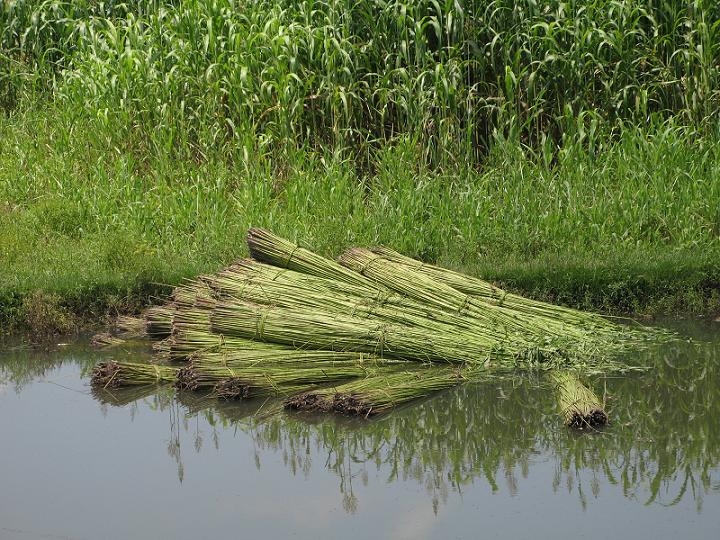Farmers in the district are counting heavy losses as they are forced
to sell their raw jute at low prices.
The prices for the golden fibre the growers are now getting in the
local markets are even not to enable them to recover the production
cost.
During a recent visit to Kochabari and Shibganj jute markets, the UNB
correspondent saw newly-harvested jute selling at the price not more
than Tk800 per maund (one maund is equal to 39.37 kilogrammes).
Raw jute is also selling at the same price at Jadurani haat in Haripur
upazila and Lahiri haat in Baliadangi upazila.
Merazul Hossain, a jute grower of Akcha village under Sadar upazila,
said he had to spend Tk1200 to 1500 to produce one maund of jute this
year.
But the harvested jute is being sold at much lower price compared to
its production cost, he added.
Habibul Islam, owner of Golden Fibre Industries Ltd, said they are
purchasing best quality jute at more than Tk1000 a maund.
Sources said as jute prices remain low, many brokers, middlemen and
hoarders are buying the crop from different hats to stock.
The government buying centres are yet to start purchasing the crop from growers.
Talking to the UNB, farmers of different areas said they are facing
difficulties in rotting jute due to scarcity of water.
In most cases, they are being compelled to take the harvested crop to
distant areas to rot it in ponds or canals.
Thus, the cost for processing the crop gets higher.
Farmers said the jute also gets lower quality for rotting it in dirty water.
Mahbub, a farmer of Singia village under Sadar upazila, said he
cultivated jute on his six bigahs of land this year and water shortage
forced him to reap the crop later.
He is now mulling over getting a near-by canal filled with water
through shallow machine and rotting the harvested jute there.
At this, he has to bear additional expenditure of Tk1000 for jute from
a bigha of land, said Mahbub, adding that he will have to incur losses
this year.
Sources at the Department of Agriculture Extension (DAE) in Thakurgaon
said jute was cultivated on 13,973 hectares of land in the district
during this season.
Of the cultivated jute, high yielding tosha variety was grown on
11,334 hectares of land while local variety on 2,663 hectares.
Jute yield is expected to be 1,88,103 bales (one bale is equal to five
maunds) this season. -UNB, Thakurgaon




